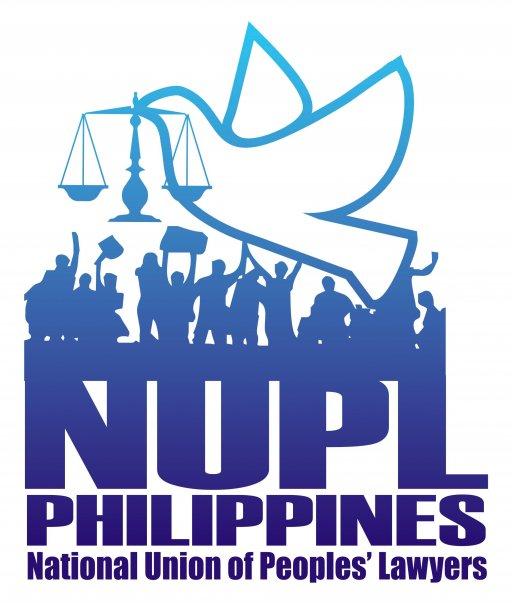
NUPL logo
MANILA, Philippines — The Section 29 of the proposed Anti-Terrorism Bill, which is set to amend the Human Security Act of 2007, goes against the 1987 Constitution’s provisions on warrantless arrests, a lawyers’ group claimed.
In a legal opinion published by the National Union of People’s Lawyers (NUPL), the group said the bill allows the arrest of an individual based on suspicion that he or she is a part of a terrorist organization, or is set to do a terrorist act, even without securing an order from the court.
However, NUPL noted that the Constitution only allows warrantless arrests under three circumstances: that the person has committed, is actually committing, or attempting to commit a crime in front of an arresting officer; when the crime has just committed and that the arresting officer has probable cause to believe that a person committed it; or when a prisoner escapes.
“It also changes the rules by permitting warrantless arrests based on mere suspicion of criminal activity. This goes against the very essence of the constitutional right to liberty and due process,” NUPL said on Thursday.
“Suspicion does not amount to evidence, and that is why the law requires that a criminal complaint should undergo preliminary investigation before a prosecutor to determine whether there is basis to hold a respondent for trial. It is only after a criminal case is filed in court that a warrant may be issued by a judge in order to arrest someone whom they suspect to be responsible for a crime,” the group stressed.
Section 29 of the said bill states that law enforcement officer or a military officer authorized by the Anti-Terrorism Council (ATC) can take into custody persons suspected of committing terrorist acts and may be detained without charges for 24 days.
According to NUPL, the recommendations on who may be arrested comes from the ATC that would be created, but they noted that none of the officers within the said body are from the judiciary.
Instead, they would be made up of President Rodrigo Duterte’s cabinet officials, thus giving another set of powers for the executive branch.
“The ATC is not a judicial body nor is it made up of judges. It is an office under the Executive Department whose members are appointed by the President,” the organization said.
“So, contrary to what the proponents suggest, the ATB – as it is explicitly and plainly worded now — once it becomes law, will in fact change the rules by allowing the Anti-Terrorism Council to give police and military personnel written authority to carry out arrests,” they added.
Currently, the Anti-Terror Bill is still awaiting Duterte’s signature after Congress approved it, with the House of Representatives adopting the Senate version.
Duterte said during his briefing on Monday night that the controversial bill is still being reviewed by his legal team, as part of a standard procedure whenever Congress passes laws. Afterwards, the President said he will review recommendations and then act based on it.
However, a day after, Presidential spokesperson Harry Roque said that Duterte is inclined to sign the law.
READ: Palace legal team still reviewing anti-terrorism bill – Duterte https://newsinfo.inquirer.net/1295808/duterte-palace-legal-team-still-reviewing-anti-terror-billpalace-legal-team-still-reviewing-anti-terrorism-bill-duterte
The said proposed measure has met great opposition from various groups, as people believe it may be used to target individuals criticizing the government.
It has been the focus of various protests recently, as they believe that it is untimely for the government to prioritize such concerns while the country is still fighting the COVID-19 pandemic, which as of Friday, has infected over 34,000 individuals in the country.